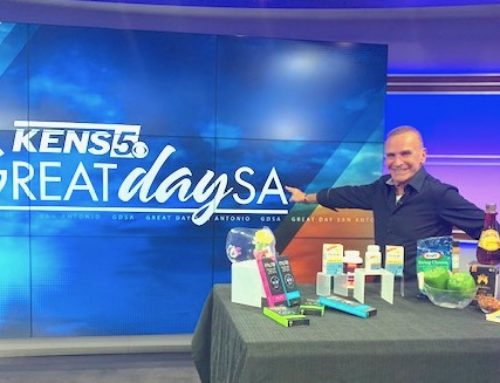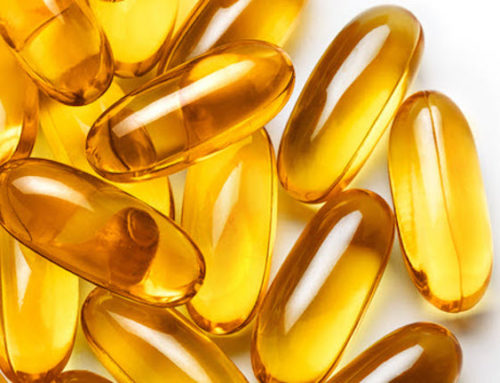Stress is one of the major promoters of degenerative diseases. In my book, The Most Effective Ways to Live Longer, I called it one of the “Four Horsemen of Aging”, and in Dr. Sinatra’s and my book, The Great Cholesterol Myth, we call it one of the four major promoters of heart disease. It’s not just “all in your head”.
In some cases, stress alone can bring on an outbreak or attack (alopecia, herpes, even a heart attack), but in every case stress makes existing diseases and conditions worse and recovery slower. The overproduction of stress hormones like cortisol actually shrink a portion of the brain called the hippocampus (involved in memory and thinking), while weakening your immune system and directly contributing to belly fat.
(Interesting factoid that tells us something about what we really pay attention to. The fact that stress directly contributes to belly fat motivates far more people to do something about stress than its effects on the brain and the immune system!)
The holidays are a uniquely stressful time for three reasons: Food, family, and time. First, there’s more food around than at any other time of year, and most of it is delicious, terrible for your waistline, and usually irresistible. Family is wonderful but everyone’s family comes with their own unique set of stressors and upsets—no one is exempt. Finally, there are more things to do and less time to do them in. The trifecta of these three variables creates exponential increases in stress.
Here are some tips to help you navigate the season with minimal damage (and maximum joy!)
1. Look for the Higher Ground. In business, the “higher ground”
argument is the one that unites people. If everyone’s arguing
Hillary vs Trump, instead of getting in the weeds about details
(while your blood pressure goes through the roof) try saying
something like, “Look, we may disagree about the details, but we
both want the best for the country.” That’s the “higher ground”
argument—it unites rather than divides, and, in doing so, lowers
(rather than raises) stress. (Note: the Higher Ground Argument
works great in romantic relationships as well and beats the hell out
of who-did-what-when!)
2. Take a breathing break. Take a four minute “time out” for yourself.
You can do this exercise anywhere from the bathroom to your car
(even a closet will do in a pinch). Sit quietly, close your eyes, and
set your time for four minutes. Breathe. Deeply. Consciously. Think
count of seven in, hold for four, slow exhale on five. Even four
minutes—a couple, few times a day—will lower blood pressure,
change your brain waves and calm your soul. (Remember, deep
breathing is incompatible with anxiety.)
3. Supplement. During stressful times there’s an added strain put on
your body as it struggles to get through basic biochemical processes
in the midst of what is essentially a metabolic hurricane. Several
supplements can help.
a. TruNiagen™. TruNiagen is the first compound that has been
clinically demonstrated to boost levels of NAD+, which is the
basic spark plug needed for every cellular action from making
energy to burning fat to detoxification. Stress puts a lot of
demands on your NAD+ stores, which also diminish as we age.
The only way I know to keep your levels of NAD+ levels where
they need to be to handle the added demands of high-stress
periods like Thanksgiving through New Year’s Day is by taking
TruNiagen (which I do daily).
b. Vitamin B5—Vitamin B5- also known as pantothenic acid—is
eaten up alive by stress. During holidays and other stressful
time, it makes sense to take a supplement. The adrenal glands
—which are the ones that respond to stress by secreting stress-
related hormones—depend on B5. Another vitamin that’s eaten
up by stress is vitamin C, so an extra 500mg-1000mg a day
during this time would certainly not hurt.
c. Ashwagandha Ashwagandha is an ancient herb/botanical used
for centuries in Ayurvedic medicine. It’s classed as an
adaptagen (like ginseng), meaning it acts kind of like a
thermostat for your moods and energy. When you’re running
hot (too anxious, nervous) it calms you down, and when you’re
running cold (low energy, fatigue) it picks you up.
d. Natural Vitality Calm Powder.
This is a great, magnesium-based drink that’s wonderful for relieving
stress and anxiety. It’s also great before bedtime
Finally, sip green tea! Seriously. Green tea contains a terrific compound called L-theanine, which is an amino acid that really helps with relaxation. In fact, L-theanine is prescribed in Japan specifically for anxiety. L-theanine is the reason that green tea drinkers don’t tend to get the jitters—it modifies the effect of caffeine. You can also buy it as a supplement in 200mg doses. The best one is made by SunTheanine.














Leave A Comment